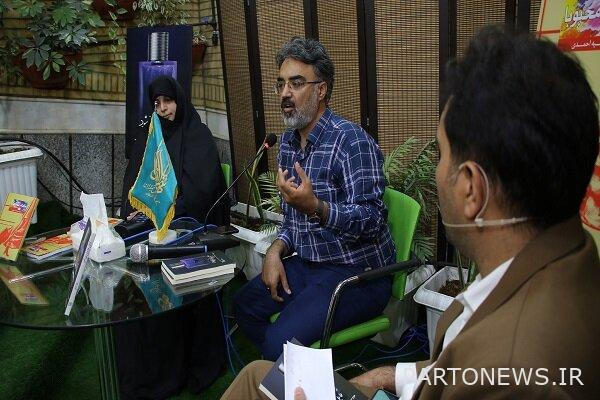Two books in the field of chastity and hijab were unveiled – Mehr news agency Iran and world’s news

According to Mehr news agency, the unveiling ceremony of two newly published books by Jamkaran Publishing House, “Qain is not forgotten” and “Madame Mehbooba” with the presence of Behzad Daneshgar, a storyteller and critic and the head of the “Narrative Khane” collection, the author of the book “Madame Mehbooba” Marzieh Ahmed. And a gathering of writers and fiction lovers was held at the Jamkaran Book Publishing Headquarters.
At the beginning of the program, Daneshgar introduced the collection of narrative house and said: This collection is a popular collection in Isfahan that works in the field of text production and has interesting and interesting productions on the issues that are the concerns of teenagers and young generations and cultural families.
He continued: Most of the works that have been produced in the society so far are works that are useful for researchers, sociologists and historians and have not been useful for the common people of the society. The House narrative collection aims to produce works that every audience can read, enjoy and be useful for.
This author said: The purpose of this collection is to cultivate writers who are concerned about culture, religion and revolution. Writers looking for a safe place to produce such works.
He further mentioned the activities of this collection of soul books, birthday collections (about transformed non-Iranian people) and these two recently published works in Jamkaran Book Publishing.
In the final part of his speech, Daneshgar said: To promote hijab, we should not use the tools that the enemy uses to strike. Tools such as posters, clips, etc., this style does not make sense at all among teenagers and young people and is not seen, instead, drama should be used. Even the leader of the revolution, in a meeting with the activists in the field of hijab, asked them to go to story writers and produce books and films on this issue.
Also, in response to the question of whether these issues do not have the risk of falling into the abyss of repetition, Daneshgar said that while not much work has been produced in this field that enters this valley, but it is the art of the writer to choose the type of his narrative in such a way that it falls into this valley. do not fall
In the following, Ahmadi, the author of the documentary story “Madame Mahboba” talked about how to choose the subject of the book and write it and added: After listening to the interviews of the characters in the story, I decided to write the book and I tried to write an attractive work for the reader, respecting the integrity of the book, and because the character of the book is real. There is not much element of imagination in it and all the events of it are the narration of the beloved’s own life.
He went on to say about his special experience in this book: One of the sweets of this work was that at the same time as I was writing this work, a person like the beloved character entered my life, and he came forward step by step with my story, and many of the feelings of the book were taken from the words of that person. Is.
In response to the question, to what extent his work is taken from TV programs and documentaries on this topic, he said: Those series usually show the course of a person’s life until the transformation, but they do not say anything after the transformation. While the main and difficult part of these people’s life happens after their transformation and lifestyle change. My concern in this book was to express Mahbuba’s life after her transformation.
In a part of the meeting, a recorded video of “Zahra Amini”, the author of the book “Cain will not be forgotten”, who was not present in the program because of the birth of her child, was played, and she introduced the book and how she wrote it and said: because Due to the bitterness of the subject, I had to embellish the story to accept the audience. Basically, my purpose of writing such a book is to express the effect of the way people deal with and judge other people and how to change the course of their lives. A book written for teenagers to help those who experience similar problems to save and find a solution.
At the end of the ceremony, the audience reviewed the book and the ceremony ended with giving gifts to the guests.

